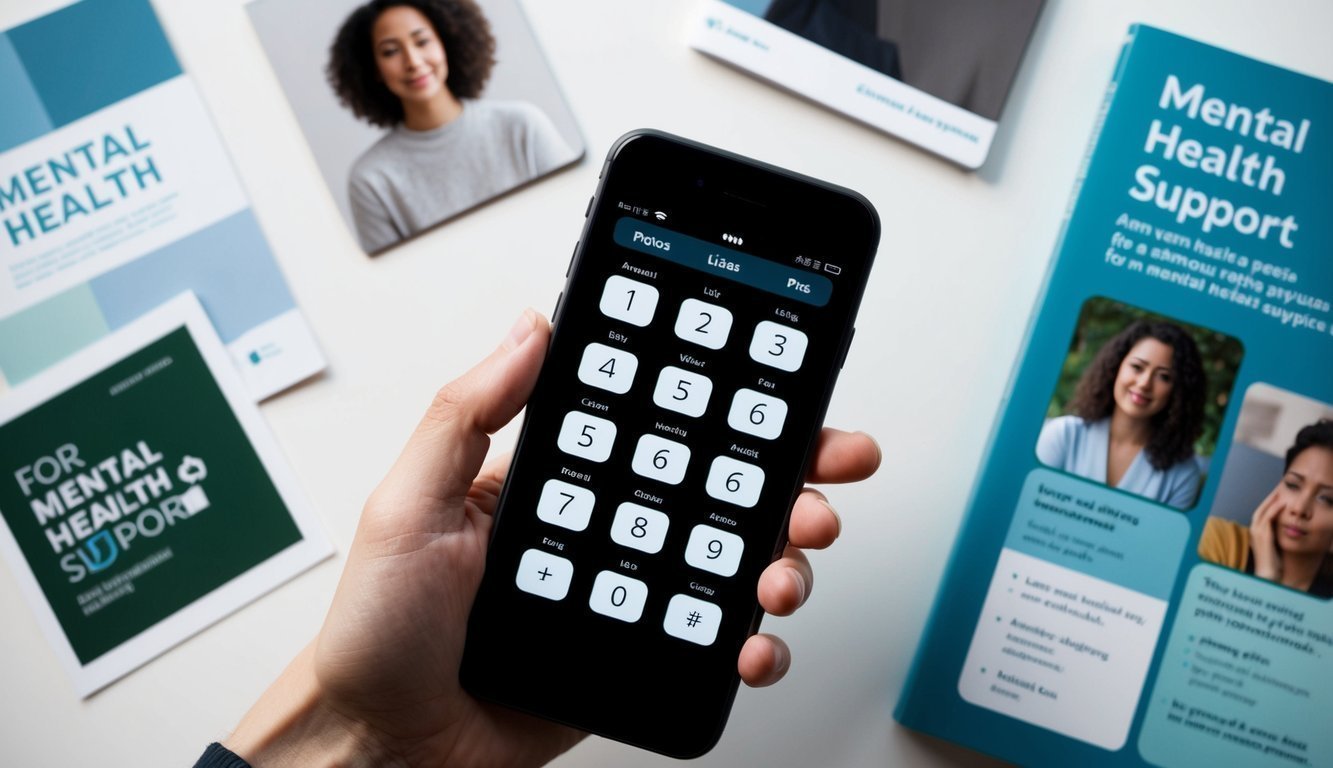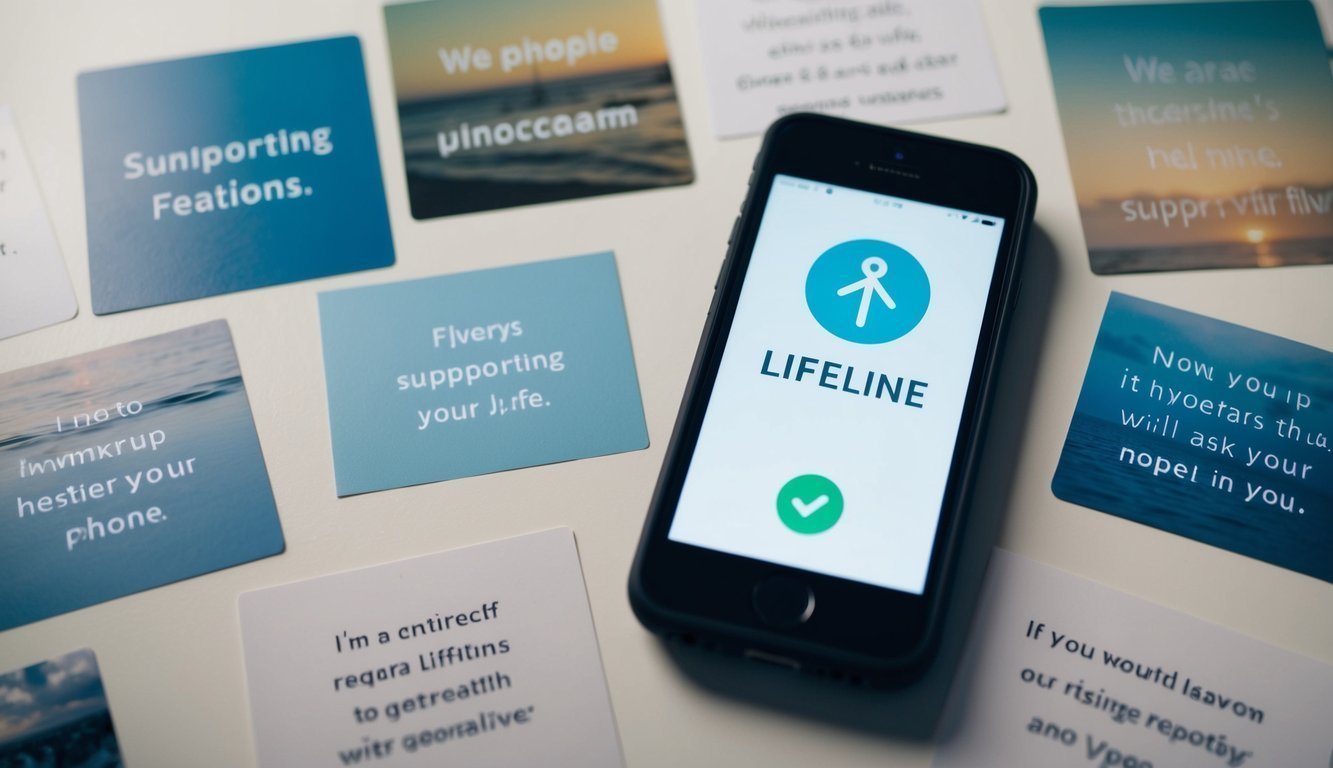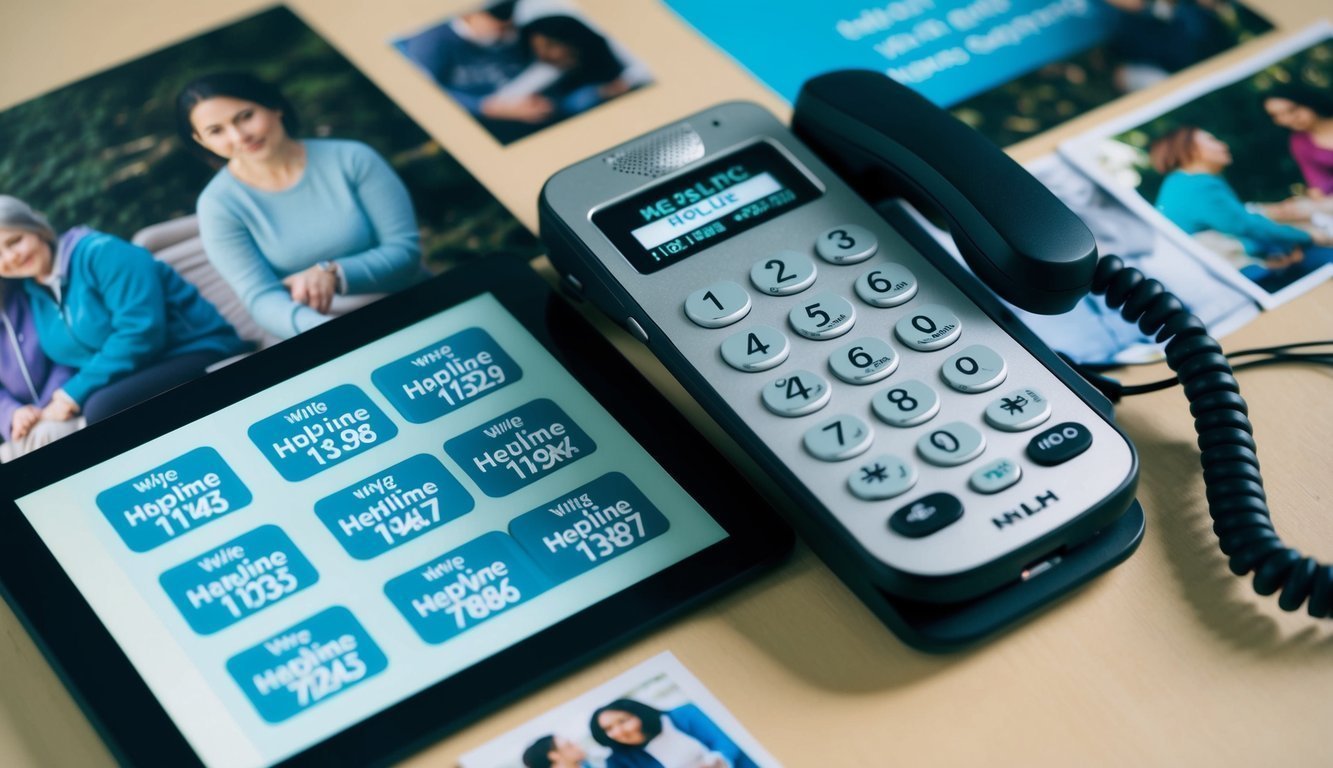PsychNewsDaily Publishers
100 Summit Drive
Burlington, MA, 01803
Telephone: (320) 349-2484
PsychNewsDaily Publishers
100 Summit Drive
Burlington, MA, 01803
Telephone: (320) 349-2484
Mental health helplines provide confidential support via phone, text, or chat, offering crisis intervention, emotional assistance, and connections to resources for various psychological issues.

Mental health helplines offer essential support to individuals grappling with psychological issues. These services provide immediate assistance and guidance for a variety of mental health concerns.
Mental health support through helplines consists of confidential communication channels that connect people with trained professionals or volunteers. The primary goal of these services is to deliver emotional support, crisis intervention, and information about mental health resources.
Helplines generally operate via phone, text, or online chat platforms, providing a safe environment for individuals to express their concerns without fear of judgment.
The main objectives of mental health helplines are:
Mental health helplines cater to a range of crises, from acute emotional turmoil to critical psychiatric emergencies.
Typical issues addressed by helplines include:
Mental health emergency hotlines are vital in suicide prevention efforts, offering immediate support to those experiencing suicidal thoughts or those worried about a loved one’s safety.
Other situations that helplines address might include severe psychotic episodes, urges for self-harm, or significant emotional distress. Helpline staff are trained to evaluate risk levels and provide the necessary interventions or referrals.

Mental health helplines deliver essential support through trained crisis counselors, organized response systems, and collaborations with emergency services. These elements work in unity to assist individuals in distress and mitigate the escalation of mental health crises.
Crisis counselors are essential to mental health helplines. They receive specialized training to manage a broad spectrum of emotional and psychological issues. These professionals use active listening techniques to assess the needs of callers and provide immediate support.
Counselors prioritize validating emotions and ensuring that callers feel acknowledged. They strive to cultivate a calm, non-judgmental space for individuals to voice their concerns openly. Through empathy and compassion, counselors quickly establish a rapport.
Equipped with skills to de-escalate intense emotions, crisis counselors guide callers through breathing techniques and grounding ejercicios to alleviate anxiety and panic. When appropriate, counselors can also refer callers to longer-term mental health services.
The crisis response system is a structured method to handle incoming calls and prioritize interventions. It encompasses a set of protocols aimed at evaluating risk levels and selecting the right actions.
Core elements of the system consist of:
Helplines are available 24/7, ensuring constant accessibility for those in crisis. Advanced call routing systems connect individuals with counselors possessing relevant expertise, allowing for specialized support in areas such as substance abuse or domestic violence.
The crisis response system also includes follow-up protocols that guarantee continuity of care and monitor the progress of individuals who have received crisis intervention.
Mental health helplines frequently collaborate with law enforcement agencies to manage scenarios that necessitate immediate physical intervention. This partnership is crucial for addressing high-risk cases where a caller’s safety is at stake.
Engagement protocols with law enforcement usually consist of:
Crisis helpline personnel are trained to communicate effectively with law enforcement, offering essential information about a caller’s mental state and potential risks. This collaboration ensures that police actions are appropriate and sensitive to mental health needs.
In certain situations, mental health professionals may accompany law enforcement during wellness checks or crisis interventions. This combined approach leverages the expertise of both sectors to achieve the best possible outcomes for individuals in distress.

The National Suicide Prevention Lifeline provides vital support for those in crisis, offering free and confidential assistance 24/7 through a network of crisis centers across the United States.
The National Suicide Prevention Lifeline runs via a nationwide network of crisis centers. When someone calls 800-273-TALK (8255), they are directed to a trained counselor at the closest available center.
These counselors are equipped to manage various mental health crises, such as suicidal ideation, substance abuse, and emotional turmoil. They deliver immediate support, conduct risk assessments, and create safety plans.
The Lifeline also accommodates specific populations, including veterans, LGBTQ+ individuals, and Spanish speakers. Counselors can connect callers with local mental health resources as needed.
Individuals can avail themselves of the National Suicide Prevention Lifeline through several channels:
The Lifeline operates 24 hours a day, 365 days a year, with no appointments required and services provided at no cost.
Crisis counselors are trained to offer emotional support, de-escalation strategies, and assistance in developing safety plans. Additionally, they can link callers to local resources for ongoing care and support.

While mental health helplines are crucial, they are not the sole source of support. Mental health professionals, including therapists and counselors, provide comprehensive, personalized care for those facing mental health challenges.
General practitioners (GPs) hold an essential role in mental health care, offering initial assessments, prescribing medications when needed, and referring patients to specialized services.
Crisis services are critical for immediate assistance during mental health emergencies. These encompass:
Support groups create avenues for individuals to share experiences and coping strategies with others facing similar issues. Many of these groups are facilitated by mental health professionals or trained peers.
Online resources present accessible information and self-help tools. Credible websites, applications, and forums can provide education and support for various mental health conditions.
Community mental health centers generally offer a variety of services, encompassing therapy, medication management, and group programs. These centers often operate on a sliding fee scale.
Employee Assistance Programs (EAPs) are confidential counseling services provided by numerous employers, offering short-term support and referrals for ongoing care.
“`